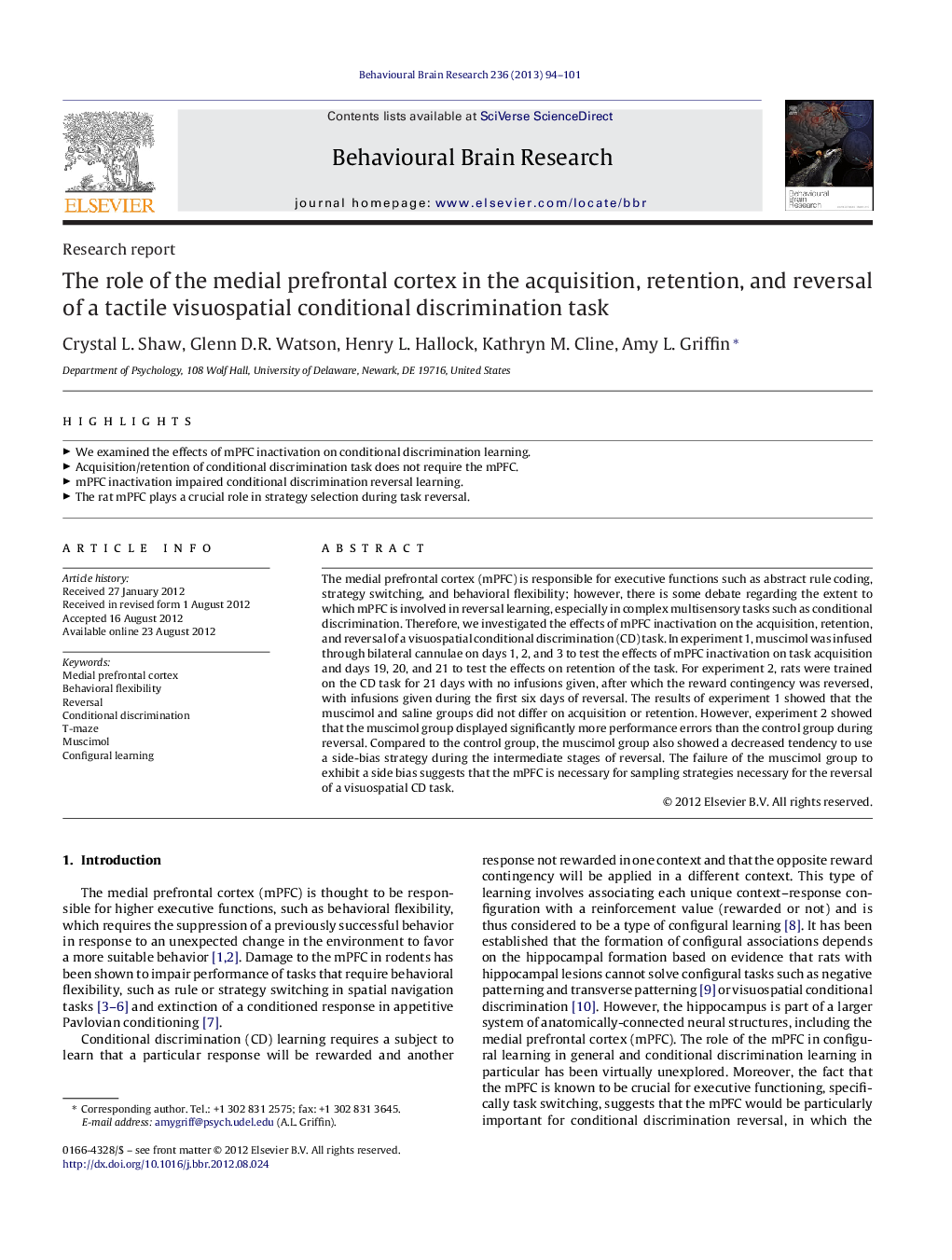| Article ID | Journal | Published Year | Pages | File Type |
|---|---|---|---|---|
| 6259442 | Behavioural Brain Research | 2013 | 8 Pages |
The medial prefrontal cortex (mPFC) is responsible for executive functions such as abstract rule coding, strategy switching, and behavioral flexibility; however, there is some debate regarding the extent to which mPFC is involved in reversal learning, especially in complex multisensory tasks such as conditional discrimination. Therefore, we investigated the effects of mPFC inactivation on the acquisition, retention, and reversal of a visuospatial conditional discrimination (CD) task. In experiment 1, muscimol was infused through bilateral cannulae on days 1, 2, and 3 to test the effects of mPFC inactivation on task acquisition and days 19, 20, and 21 to test the effects on retention of the task. For experiment 2, rats were trained on the CD task for 21 days with no infusions given, after which the reward contingency was reversed, with infusions given during the first six days of reversal. The results of experiment 1 showed that the muscimol and saline groups did not differ on acquisition or retention. However, experiment 2 showed that the muscimol group displayed significantly more performance errors than the control group during reversal. Compared to the control group, the muscimol group also showed a decreased tendency to use a side-bias strategy during the intermediate stages of reversal. The failure of the muscimol group to exhibit a side bias suggests that the mPFC is necessary for sampling strategies necessary for the reversal of a visuospatial CD task.
⺠We examined the effects of mPFC inactivation on conditional discrimination learning. ⺠Acquisition/retention of conditional discrimination task does not require the mPFC. ⺠mPFC inactivation impaired conditional discrimination reversal learning. ⺠The rat mPFC plays a crucial role in strategy selection during task reversal.
